Search Results
Showing results 1 to 20 of 116

Hot Stuff!: Investigation #4
Learners test two jars containing soil, one covered and one open, for changes in temperature. After placing the jars in the Sun, learners discover that the covered jar cools down more slowly.

Hot Stuff!: Investigation #1
Learners test two jars, one containing plain air and one containing carbon dioxide gas, to see their reactions to temperature changes.

Share Your Planet
Source Institutions
In this cooperative game, learners devise strategies about sharing a small space with each other.

Drain Game
Source Institutions
In this activity (on pages 36-39), learners make a model of a watershed out of paper, then run water down the mountain to simulate how rainfall and pollution affect watersheds.
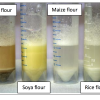
Wheat Evolution: Sedimentation Testing
Source Institutions
In this activity (Page 30 of PDF), learners investigate the evolution of wheat by conducting sedimentation tests on different flours.
Bat Echolocation Experiment
Source Institutions
In this activity, learners discover how bats use echolocation to get information about objects in their environment. During the activity, one learner whispers into a tube.
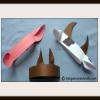
Animal Hats
Source Institutions
In this arts and crafts activity about animals and animal characteristics, learners will design animal hats and role-play as animals.
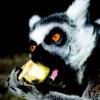
I Like to Move-It
Source Institutions
This is an activity which will allow learners to gain an understanding of lemur behavior through observation and role play.

A Recipe for Air
Learners use M&Ms® (or any other multi-color, equally-sized small candy or pieces) to create a pie graph that expresses the composition of air.
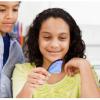
Morphing Butterfly
Source Institutions
In this activity, learners explore how nanosized structures can create brilliant color.
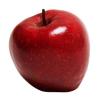
An Apple as Planet Earth
Source Institutions
In this environmental education demonstration (page 6 of the PDF), learners will see a tangible representation of the scarcity of soil resources on earth.
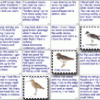
Bird Bingo
Source Institutions
In this activity, learners play bingo to learn about the diversity of birds. This game includes a warm-up lesson and "Full Flight" version.
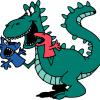
Dinosaur Sock Puppet
Source Institutions
In this activity about dinosaurs, learners first participate in a group discussion about where and when dinosaurs lived, how big they were, and who studies them and how.
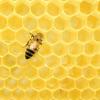
Honeycomb Geometry
Source Institutions
In this activity, learners will build a honeycomb. Learners will investigate how the shape of the honeycomb develops. Activity includes step-by-step instructions and extension ideas.
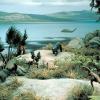
Dinosaur Homes
Source Institutions
In this activity about dinosaurs and survival, learners use scrap materials to create a miniature dinosaur habitat that includes a food source, water source, and shelter.
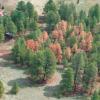
Bark Beetle Infestation Investigation: Estimation and Pheromones
Source Institutions
This activity investigates how bark beetles can threaten forests by having learners estimate the number of infected trees from a photo.
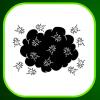
Nowhere to Hide
Source Institutions
In this online simulation, learners can see adaptation and camouflage in action.
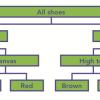
Shoe Dichotomous Key
Source Institutions
In this activity (on page 2 of the PDF under GPS: Cactus Activity), learners will develop their own version of a tool used by biologists, a dichotomous key, by collecting all their left shoes.
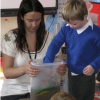
How We Know What The Dinosaurs Looked Like: How Fossils Were Formed
Source Institutions
In this activity (p.7-8 of PDF), learners examine fossil formation.
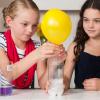
What's In Your Breath?
Source Institutions
In this activity, learners test to see if carbon dioxide is present in the air we breathe in and out by using a detector made from red cabbage.
